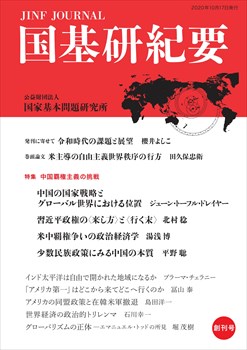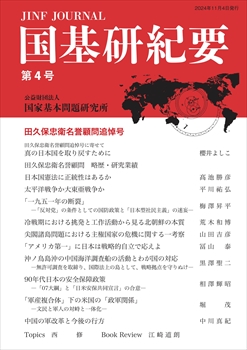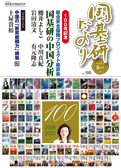2014年9月7日から13日までワシントンDCを訪れた国基研調査団(冨山泰、湯浅博、島田)は、シンクタンクや連邦議員事務所などで意見交換を重ねた。その際、慰安婦問題も取り上げ、西岡力東京基督教大学教授(国基研企画委員を兼ねる)執筆の英文パンフレットと米軍による朝鮮人慰安婦尋問調書を手渡し、議論の材料とした。
面談者の一人デニス・ハルピン氏(元下院外交委員長スタッフ)は慰安婦問題活動家のミンディ・カトラー氏を帯同して現れたが、この二人から取材したらしい韓国紙『中央日報』の記者が、冒頭いきなり私の名前が出てくる批判記事を10月1日付で載せた(下に英語ウェブ版を資料として貼り付けておく)。国基研は「超保守民間組織」と定義されている。
内容は型にはまっていて知的に得るものはないが、いくつか興味深い点がある。まず記者(韓国人)は、慰安婦を「強制徴用」(forcible mobilization)された存在と断定している。今や国際社会が問題にするのは強制連行の有無ではなく慰安所における強制的生活などと主張する向きも日本国内にはあるが、それは現実に目をふさいだ言い立てである。慰安婦=日本軍による強制連行という虚偽宣伝は今も国際舞台で盛んに行われている。この記事もその一例だ。
なお記事も、1996年の国連人権委員会クマラスワミ報告が依拠した吉田清治証言が虚偽だという点はもはや反論できずにいる。ただし、「日本の守備隊(guard)に連行された13歳の少女」や「その他軍需工場に働きに行くと考えていた女性たち」の証言がより重要と強調することで、吉田証言の役割を極小化しようとの意図が見られる。そして、裏付けや矛盾点の解明がなされていないとそれら証言の「価値を減じる」西岡パンフレットを「極右」による作業と非難している。
しかし、元慰安婦の証言をすべて鵜呑みに出来ないのは、あらゆる社会事象の場合と同様である。証言の中には、矛盾や政治的圧力によると見られる歪曲・誇張が明らかなケースもある。その点、米軍による朝鮮人慰安婦への尋問調書(1944年、ビルマにて)が、いかなる意味でも日本を弁護する動機を持たない第三者(敵国)が、当時、直接行った聞き取りという点で、最も史料としての価値が高い。そこには「性奴隷」とはほど遠い実態が描かれている。
ところで、この米軍調書も、下の記事に名前の出てくるハルピン、カトラー、ニクシュ氏(元米議会調査局調査官)らを含めて渡したのだが、こちらの方は、記事中に全く言及がない。やはり韓国側にとって都合が悪い史料ということか。すなわち日本側にとっては、最も重要な反論材料ということになる。
JoongAng Ilbo(中央日報)
Twisting
facts about ‘comfort women’
Oct 01, 2014
Yoichi Shimada, a council member at the Japan Institute for National Fundamentals, and two others met with Mindy Kotler, director of Asia Policy Point, Larry Niksch, a senior associate at the Center for Strategic and International Studies (CSIS), and Dennis Halpin, a visiting scholar at the Johns Hopkins School of Advanced International Studies (SAIS) earlier this month, where they were presented with a booklet titled “The Comfort Women Issue” by Japanese rightists.
It defines the “comfort women” - a term used to euphemistically refer to sexual slaves mobilized by Japan for use in its Imperial Army before and during World War II - as “women who were in the position of having to sell sex to soldiers even though it was not their intention.”
While the booklet portrayed the sexual slavery as being conducted against the women’s will, describing it as “to sell sex” slyly defines their enslavement as prostitution. Also, it argues that “the cause for their recruitment was not coercion by government authorities but their poverty and the intervention of private recruiters,” which rebuts the forcible mobilization of these women and holds them responsible.
It has been revealed that ultra-conservative private Japanese organizations also distributed the promotional booklet that describes the wartime sex slavery as prostitution to think tanks in Washington, D.C.
Halpin was furious as he told me about the booklet. The Japanese are attempting to convince the United States and the international community that the comfort women were not sex slaves of imperial Japan. He added that former Secretary of State Hillary Clinton had defined comfort women as wartime sex slaves.
The booklet also claims that the 1996 report on comfort women, a special investigation by the UN Human Rights Commission into the violence they had suffered, was based on false allegations, as Japanese recruiter Seiji Yoshida’s testimony had been “proven to be untrue.” The report is based on evidence and testimonies by comfort women, includinga girl taken by Japanese guards at thirteen years of age and another victim who thought she was going to work at a munitions factory. The booklet devalues the testimonies of former sex slaves, as “no effort was made to authenticate their testimony or question contradictory points.”
Despite the work of Japanese far-rightists, it is generally acknowledged that their claims are not convincing, as Washington approaches wartime sex slavery as a human rights violation. It seems they don’t understand that false claims cannot cover up their shameful history.
*The author is a Washington correspondent of the JoongAng Ilbo.
JoongAng Ilbo, Sept. 30, Page 33
by CHAE BYUNG-GUN






